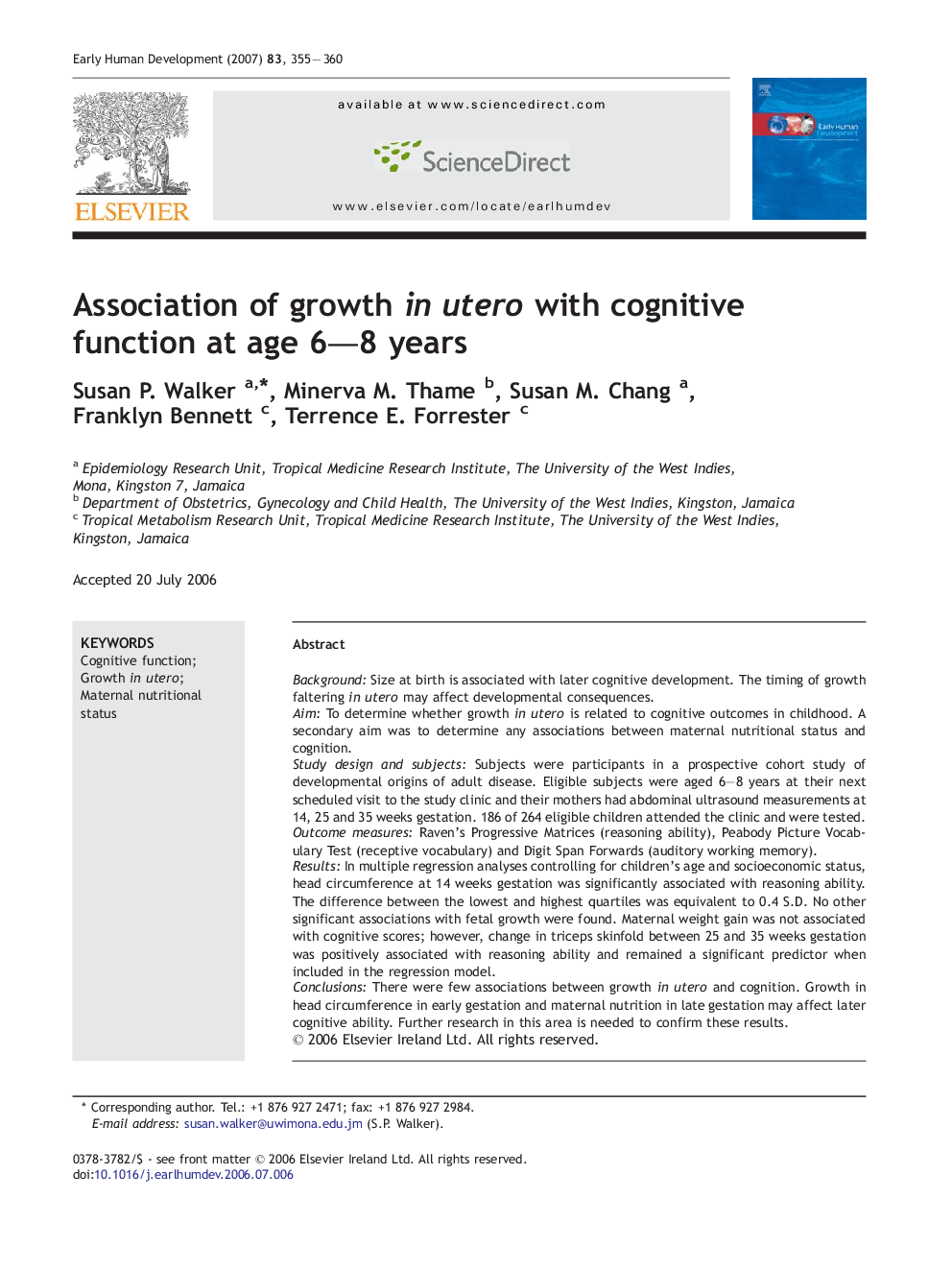| Article ID | Journal | Published Year | Pages | File Type |
|---|---|---|---|---|
| 3917719 | Early Human Development | 2007 | 6 Pages |
BackgroundSize at birth is associated with later cognitive development. The timing of growth faltering in utero may affect developmental consequences.AimTo determine whether growth in utero is related to cognitive outcomes in childhood. A secondary aim was to determine any associations between maternal nutritional status and cognition.Study design and subjectsSubjects were participants in a prospective cohort study of developmental origins of adult disease. Eligible subjects were aged 6–8 years at their next scheduled visit to the study clinic and their mothers had abdominal ultrasound measurements at 14, 25 and 35 weeks gestation. 186 of 264 eligible children attended the clinic and were tested.Outcome measuresRaven's Progressive Matrices (reasoning ability), Peabody Picture Vocabulary Test (receptive vocabulary) and Digit Span Forwards (auditory working memory).ResultsIn multiple regression analyses controlling for children's age and socioeconomic status, head circumference at 14 weeks gestation was significantly associated with reasoning ability. The difference between the lowest and highest quartiles was equivalent to 0.4 S.D. No other significant associations with fetal growth were found. Maternal weight gain was not associated with cognitive scores; however, change in triceps skinfold between 25 and 35 weeks gestation was positively associated with reasoning ability and remained a significant predictor when included in the regression model.ConclusionsThere were few associations between growth in utero and cognition. Growth in head circumference in early gestation and maternal nutrition in late gestation may affect later cognitive ability. Further research in this area is needed to confirm these results.
